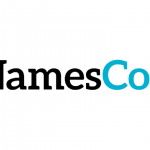We discover how the Relationship Building Domain relates to your manager and your team in this Season 6 episode of Theme Thursday. When we improve teams through owning our CliftonStrengths, we improve performance. When we improve performance, that’s how we get to the kind of organic growth that allows us to have stronger economies, a stronger world and better wellbeing. And great managers hold the key: As they move from boss to coach, they help team members understand who they are already and hold them accountable for being even better, maximizing the team’s engagement and impact. You might even be a manager in ways you never thought of! So join Jim Collison and Maika Leibbrandt for Season 6, as we focus on teams and managers — including a new talent-mindfulness challenge at the end of each webcast. Strong themes, stronger teams.
Below is a full transcript of the conversation, including time stamps. Full audio and video are posted above.
We’ve created the ultimate guide to improving teamwork in the workplace!
Jim Collison 0:00
I am Jim Collison, and live from our virtual studios around the world, this is Gallup’s Theme Thursday, Season 6, recorded on May 14, 2020.
Jim Collison 0:20
Theme Thursday is a Gallup webcast series that dives deep into the CliftonStrengths themes, one theme at a time — this season based on developing teams and managers with CliftonStrengths. Today we kick off the Relationship Building Domain. If you’re listening live, love to have you join us in our chat room. It’s actually right above me there, just click on that link; it’ll take you to YouTube. Sign into the chat room. Let us know where you’re listening from. Love to have your questions during the program — more important for the postshow, as we talk a little bit later. If you are listening after the fact and you have questions, you can send us an email: [email protected]. Don’t forget, if you’re on YouTube, you can subscribe right down there — like the — hit the “Like” button too, if you like it. That always helps us with discovery on YouTube. Want to thank you for doing that as well. Maika Leibbrandt is our host today. She’s a Workplace Consultant here at Gallup with me. Maika, always great to see you — a little break. Welcome back to Theme Thursday!
Maika Leibbrandt 1:04
Thanks, Jim. It’s great to be back! You know, Season 6 really is all about strong themes leading to stronger teams. And we’ve gone a little bit of a creative direction, if you compare this season to our other seasons. We’re going Domain by Domain, which we’ve done one other time. But what we’re doing really special and extra for this season is diving into those Domains. So today will not be about a specific theme. I know Megan’s joining from the ASC that she’s taking right now; it is her lunch break. So Megan, you can go back to your friends and teach them all about the Relationship Building Domain. Because today, we really are exploring just that, that entire Domain together to help you answer the question, What is the role that I play on a team as it relates to those 4 Domains?
Jim Collison 1:48
Maika, we talk about theme dynamics. Do we also talk about team dynamics? Is that the same — when we think about teams and Domains and mixing these together, do we, do we talk about it in that way?
Maika Leibbrandt 1:59
I love that idea of team dynamics, because that’s probably even more of a commonly held phrase in people’s lives. When we’re looking at CliftonStrengths, we see 4 Domains. And those might be the easiest way to break down all 34 into a way to talk about how do members of a team play together? So technically, they really are 4 Domains of Leadership. And they originated as Gallup was studying willing followership, which, if you compare that kind of a study to maybe other books that you could pick up in a, in a bookstore about leadership, what’s really different about it is Gallup was never profiling just, you know, one really great leader; it’s not an autobiography of somebody who’s been really successful. Instead, it was flipping the filter and asking people to think about who they willingly follow; who they’re attracted to, in terms of being a follower in their life.
Maika Leibbrandt 2:48
And then those Domains describe your general default for how you lead in a way that we know makes a difference to — probably the one thing that’s most important to have as a leader, and that is followers. So since we’re looking at what your most natural, unfiltered patterns of thinking and feeling and behavior — behaving are, by the very nature of CliftonStrengths, it doesn’t tend to vary drastically across life situations. So with these 4 Domains, it is completely fair and acceptable to take that a step farther and generally get some meaningful clues overall to how people react to different situations beyond just leadership. So we, we’ve been able to start with these 4 Domains as they relate to leadership and really extrapolate them to have some meaningful purpose as they relate to how do you work with a team? How do you work with a partner? How do you look at a group of people and be able to describe the dynamics, just as you asked there, Jim. So those 4 are Executing, Influencing, Relationship Building and Strategic Thinking.
Jim Collison 3:51
So for Season 6, we’re on the third one — Relationship Building — which means we’re halfway through. So this is kind of, we took 2 weeks off for a little bit of halftime, and, and to kind of come back. But as we think about this Relationship Building themes, kind of makes sense. Like when you think about Relationship Building, I think it goes a lot deeper than the name, though. So give us a little explanation. What do — we say Relationship Building. What do we mean?
Maika Leibbrandt 4:14
These are the glue that holds the team together. Now remember, these originally came from leadership behavior. So a leader who leads with Relationship Building will inspire and influence people, I think in two ways. One is they’ll connect individually with other people, sort of holding their hands and engaging with them personally. It’s about seeing and sensing the personal experience that other people are having, and being drawn to building those bonds one by one by one.
Maika Leibbrandt 4:43
The second way that they’ll do that is they’ll create connection among groups of individuals. They care for the links between people, and they’ll do this by planting or encouraging or strengthening the networks within larger groups of people. So people who lead with Relationship Building — and if you’ve taken a CliftonStrengths, you’ve got your big 25-page CliftonStrengths 34 report — on the front page, it actually tells you which of those 4 Domains you lead with or is most dominant for you. If that describes you, it probably means that you can take groups of individuals and transform them into teams or families or communities or partners.
Jim Collison 5:21
Yeah. And on that, on that report, don’t get hung up on the order. It starts a conversation with it, right, as we go, as we go into that. So let that be a lead to the conversation. And so today we’re going to give you some insights into that. When we think about Relationship Building, which themes comprise this, this Domain?
Maika Leibbrandt 5:39
You can find out more about this in the book Strengths Based Leadership or on your own 34 report. There are nine themes that fall into the Relationship Building category: Adaptability, Connectedness, Developer, Empathy, Harmony, Includer, Individualization, Positivity and Relator. I’m sure somebody can put all of those into the chat right now because they were listening very closely and taking good notes. Each of these themes is going to build relationships slightly differently. And we will explore every single one of them over the past — or over the next 9 episodes of this season. And really the — I think our goal in every episode is to uncover the “how,” so that you’re not just saying, “Oh, they build relationships,” but you can say, “How does Connectedness do this versus how Relator can do this?” so that you can answer that ultimate quest of How can I better honor the people on my team based on who they are, instead of forcing them all into the same sort of mold?
Maika Leibbrandt 6:39
On the whole, I would say this group of 9 themes shares a common thread, and that is that they focus on the people side of the process. They see work and challenges and opportunities through that lens of human connection. People who lead with, with any of these 9 are driven, motivated and inspired by interaction with other people. So if the Domain really does describe what they do, they build relationships, then each theme offers some specific insight into how they do that. Now on some level, Relationship Building themes thrive in their ability to sense, elevate and connect. Think about sensing — think about Empathy sensing the emotion of others; Individualization sensing the differences between other people that really could be valuable; Connectedness sensing mystery and serendipity.
Maika Leibbrandt 7:38
When I think about elevating, I think about Developer elevating another’s understanding or another’s expectation. Positivity elevates another’s mood or elevates the emotional experience of another person. And, and we look at that connecting piece — it’s Harmony connecting people on areas of shared agreement. It’s Includer connecting groups to their missing pieces. It’s Adaptability connecting people to their most urgent or most instant needs. All of your themes, even if they’re not Relationship Building themes, create a filter through which you see, experience and think about your world. For the most part, the filter of Relationship Building, which is something that can’t be turned on or turned off, it is about what you’re constantly picking up from others and effortlessly offering to others in response to whatever you’re picking up.
Jim Collison 8:34
Yeah, so let’s say that I look at a picture of my team and I noticed dominant strengths in Relationship Building — maybe a team grid — and I’m seeing that, that kind of that pattern pretty regularly. What does that really tell me?
Maika Leibbrandt 8:48
So a team who’s got some dominant Relationship Building talent is likely to have strong social bonds, or a consistent desire to create them. If they’re not already there, they’re constantly looking for how they can make them happen. It does not instantly mean that those strong social connections are going to be with each other. I’ve, I’ve led and consulted and worked with teams who had, for example, loads of Relator. And they likely take longer to get to the inner circle of trust with anyone. And very often I’ve worked with these teams who you might look on paper, see a ton of Relator, and think, Oh, I bet they’re all best friends with each other, when in reality, they’ve all got other networks and other constituencies that they feel closer to. And in fact, you’d get those, those leaders in a room and they feel a little bit distant. So you could feel their social and emotional connection with people outside the team — that’s really where you need a coach and actual experience and a bunch of curiosity to figure out what’s going on. But with enough time and support, turning those bonds inward toward the people on the team definitely, in my experience and some of the teams I’m thinking about right now, definitely creates that lasting connection that almost creates something In addition to the people — the connection there takes on a life of its own.
Maika Leibbrandt 10:04
Teams with a lot of Relationship Building talents are social. They, they create a whole, a team, a collective being that really is true, truly bigger than just a collection of individuals. You might also notice, if you’ve got a lot of Relationship Building on a team, that their primary instinct on how to solve a problem is to tune into each other, or to tune into other trusted advisers. So don’t take that as a contrast, if you see, let’s say, looking at the difference between Relationship Building and Strategic Thinking and thinking, well, they must not think critically. They absolutely do; they just do it through people. What do our most important stakeholders think? What will the solution that we’re coming up with mean for our partners? How does this move, impact or influence the wellbeing of the people on this team or the people that we serve? So their version of critical thinking is always going to be again, through the human experience.
Jim Collison 11:01
Yeah, leaning into those, those where they’re successful, kind of through those themes, through those Domains in a primary sense. But Maika, that doesn’t mean they can’t have other, other things, right, that maybe they’re dominant — I mentioned in the preshow that I have 4 of these in my Top 10. They’re 6, you know, 6 through 10; 4 exist there. That doesn’t mean necessarily, I can’t do other things, right?
Maika Leibbrandt 11:28
I think that’s important, and especially as you’re looking at teams, I always say this. Even just the very nature of looking at a team grid or however you’re looking at the, the makeup of the people who have strengths on your teams (everybody on your team has strengths; the makeup of the strengths of the people on your team is what I was trying to say). You always want to look first individual by individual and anytime you’re having a conversation, whether it’s with the leader or the manager of that team, or with a team as a whole, don’t just blur your eyes and look at the, the aggregate. Always give the voice to the individual first because you will find that there are unique themes within a person, you know, maybe 4 of my Top 5 are in one category, but this other one is really what I feel is strongest in relationship to that team. If that’s what somebody on your team would say, you can’t overlook their actual personal experience. You need, you need to hear that from that — you need to hear from them first around that. So there could be individuals who have other themes that just aren’t as dominant. There could also be individuals who lead with completely different themes. And the nature of a great team, which we dive into in every episode is about how do we embrace the diversity of that sort of different way of thinking and feeling and seeing the world?
Jim Collison 12:39
Yeah, and oftentimes, we want to simplify in some of our work and try to find easier ways to get to the point, and this is not an area you want to do that. You want to dig in with these teams to figure some of these things out. Now these give you some headers, some helpful hints, some where they lean and how they, how they kind of — areas where they could be successful, but certainly asking these questions and as we think about great managers and supporting a team that’s high in Relationship Building, what kind of questions or what kind of things could they do to help support these teams? What kind of actions could they do that, that may have a potential benefit to the team?
Maika Leibbrandt 13:14
So the answer is always going to be lean into it; lean into the talent the team has. If you’re a manager of a team who’s strong or frequent in Relationship Building, maybe just address that from the very get go and look at what kind of an opportunity that could create. Have the team come up with ideas to improve the environment that they’re in, and address the environment as its own, living, breathing organism. Summarize meetings at the end of the meeting to identify action items, and really, I think create a system to help them be present with each other and allow the system to be the piece that keeps everybody accountable. They’re different than a group of Executers; they’re not naturally going to look for, Hey, what were those commitments we made? So don’t expect that to come organically from from the living matter within the within the team.
Maika Leibbrandt 14:01
Examine all strategies to find any solutions you may have missed. Again, they’re not the Strategic Thinking is naturally going to do that really well. Write down those plans; bring them back up. Allow them to simmer, give them the space to go off and ask, you know, to solve the problem through people. They’ll probably find other angles or other perspectives that you may have missed if you were just thinking really hard through a solution. And create team timelines for projects that visually represent each employee’s obligations and the opportunities for impact that that’s going to have on, again — the love language that they speak is that of people, so make sure that you’re always talking about the impact of a goal or the impact of what will we have accomplished for other people once we, once we reach what it is we’re aiming at?
Jim Collison 14:47
Yeah, and maybe even a more important question, What if they don’t show up as frequently in this team? What can — how can I manager lean into this if it’s not appearing there that way?
Maika Leibbrandt 14:57
Celebrate every success anyway. I think make sure, again, this is looking for opportunities to still create the work environment. And what we know about engagement is not every manager naturally addresses the environment that they’re creating. Not every person or leader is, is capable of even seeing it as easily as, as some great managers might. So how can you — the same idea of creating a system so that you can let the people play and thrive in it? You might create a system for Relationship Building if your team is lacking it. Maybe that’s reviewing team goals and having parties on purpose; limiting your team’s commitments to those with the highest priority; recognizing employees’ accomplishments regularly; reviewing how did we work together and not just how did we work, so that you can really make the Relationship Building part of what they strategize or what they execute on, instead of what they — what you can expect them to create without trying.
Jim Collison 15:55
There’s a little bit of this conversation already going on in our chat room. One of the benefits of joining us live here for the program, if you’re listening to the recorded ones. How could this Relationship Building theme get in a team’s way? Like, what are some things we might want to watch out for?
Maika Leibbrandt 16:11
Yeah, if you’ve got a team with a ton of Relationship Building, not guaranteeing it is gonna happen. This is not scientific evidence; it’s just anecdotal here, but they could be more interested in connecting with each other than anything else. Now, prioritizing relationships matters to people with high Relationship Building themes. But that external motivation that tends to accompany a filter that’s so others-focused can distract you from your own priorities or from executing organizational goals or targets. You can spend a lot of energy trying to curate the ideal team. I think it is about how — where are we spending our energy that honors who we are already, and what do we need to be careful about? No matter which of those Domains is dominant, it’s always worth saying, what are we doing most naturally, and how could that get in our way? And then holding that safe space to call each other out on it, to honor each other by letting each other know, maybe, you know, here’s the flame, and you’re getting a little bit too close to it.
Maika Leibbrandt 17:17
So I think it’s really about talking about it openly, openly and honestly. But that’s probably the primary thing that I notice about teams with dominant Relationship Building is when they do have a blind spot, it tends to be that their world is, is more about the social connection, or the worry that a social connection is going to go bad, that prevents them from making bold decisions or taking courageous steps or even just focusing on the task ahead of them.
Jim Collison 17:41
When we think about a team, maybe they’re — and they’re struggling, how important to coach to that team from from that aspect?
Maika Leibbrandt 17:48
What Jim just did there is a journalism trick, which is where you ask a very obvious question when you know the other person is going to say something fantastic. How important is a coach, Jim? See, this is where when you’re editing it, you get to go back to me saying, “It’s the most important thing in the world!” That was brilliantly executed.
Jim Collison 18:06
It’s what I do, Maika. It’s what I do.
Maika Leibbrandt 18:08
You’re right, though. Analysis of a team can be dangerous without somebody who knows what they’re really doing. You can get stuck, there’s, let’s just be honest, there’s 34 themes. That’s a complicated tool to understand. And some of them are words that we made up. Some of them are words that have very specific meanings, but that you’ll see outside of CliftonStrengths, and they might mean something a little bit different. So one of the greatest reasons to have I think, a Gallup-Certified Coach helping you is you know that you are utilizing the tool in the way that serves the integrity that it was designed by, and just having somebody who can translate the language.
Maika Leibbrandt 18:46
Another reason you want to coach is to have that extra pair of eyes. Even thinking about a coach or a fellow peer manager or somebody else who’s not a part of that team, to honor you as that team leader and say, Let me just give you something free of judgment, free of pretense, free of experience with these people to stay curious about it. And I actually — this morning, I actually wrote the talent-mindfulness for Positivity that you’ll hear in a couple weeks. And just to give you a little bit of a taste, it’s this idea of instead of being judgmental, whether that’s judging something as good or bad, in that moment, can you get curious instead? And I think the value of a coach is to keep you in that space of curiosity.
Jim Collison 19:32
So let’s think about the manager for a second and, and where’s a great starting place? They’ve got this, they got some information. How does how does a manager really do this? How do they, how can they get into this?
Maika Leibbrandt 19:44
The easiest place to start is with your own strengths. If you have not gone back to your CliftonStrengths 34 report, it is meant to be something that you return to often. There might be pieces of it that you pull out today because you’re in a different challenge than you’ve been in before. Or there might be pieces of it that you reread that mean something completely different to you. Remember, especially those first 5, you’ve got those Theme Insight Statements that are curated just for you, based on your unique profile. So start there. Look at what it is you’re trying to accomplish with your team. I am a big proponent of having a question that you want to answer before you just look at how your team is made up. It’s much more sustainable to say, we want to evaluate our team so that we can accomplish XYZ than it is to say, I just want to look at my team. You wouldn’t have a — like you wouldn’t have an MRI unless you’re trying to solve a problem. So don’t do that to your team either.
Maika Leibbrandt 20:40
So I think it’s look at your own through that lens of what problem are you trying to solve or what improvement are you trying to make? And then invite individuals to talk with you about their own strengths?
Jim Collison 20:49
Yeah, unlike an MRI, how can a team leader do this? What kind of things could they do to talk about this regularly with their team?
Maika Leibbrandt 20:56
Sure, you know, prime the conversation with some easy-to-remember questions that your team can then go ask each other. Things like, What’s important in your life today? Which element of wellbeing is strongest for you and which one is suffering? How are you feeling? What are you feeling? Who is helping or supporting you, and how are they doing it?
Jim Collison 21:13
Yeah, we, we’ve been spending some time doing talent-mindfulness. You just reminded of us — of — reminded us. I think I just lost my mind there for a moment! Why don’t you — I don’t know. It’s really interesting. The brain just stopped — I was thinking about an MRI. That was probably the, the problem. We’ve been spending some time this season talking about talent-mindfulness. You have one prepared for us today, Maika. Why don’t you, while I recover, why don’t you work us through it.
Maika Leibbrandt 21:42
I love you. OK. So we’ve been talking today about Relationship Building. And we talk about this a lot as the glue that holds the team together. Great teams really start with great partnership. And in fact, as Megan in the chat knows, in our CliftonStrengths coaching courses and the way we train coaches, we don’t just jump straight from individuals to teams without first passing through the importance of evaluating and strengthening partnerships. In practice day to day, teams are rarely one group working all together. They’re much more often made up of intricate networks of partners, webs of collaboration. If your team was a ball of yarn, it’s made up of single threads and not some strands connecting two people at a time. So today’s talent-mindfulness practice is going to focus on you. If you — if this is the first time you’ve listened to one of these, talent-mindfulness is a departure from everything we’ve been unpacking about the Relationship Building Domain. This is a practice to help you focus on yourself.
Maika Leibbrandt 22:54
And today we’re going to help you focus on your own partnership, spending the next 3 to 5 minutes focusing on specifically one partner in your life. Now this might be somebody you thought of a lot — maybe the person who comes to mind every time you hear the word “partner.” It might also be someone whose partnership you really haven’t yet explored with, with purpose or real intention. Maybe you’ll even play this back tomorrow and explore your connection with someone else. But for today, allow yourself the mind space to narrow your focus to one other human being in your life. I think in doing so, I hope that you learn a lot about this other person and hopefully just as much about yourself and your connection to them. This is going to bring us to the final part of our podcast today. So if you’re not in the space to do this right now, just skip ahead to the last 20 seconds or so of the episode, and you won’t want to miss what Jim has to say. So make sure you at least hear that part.
Maika Leibbrandt 23:53
I want you to settle in. Close your eyes, if that’s available to you. Empty yourself have any judgment or desire to fix or strive by exhaling all that you can. I’ll be silent while you take a few deep, slow centering breaths. Just clear your mind. … Who is someone you feel more connected to today than you did one year ago? … You don’t have to hold a positive or a negative judgment on that answer; just significance. Let your mind sort through all your people and settle in on one person whose relationship you want to think about more purposefully today. … Spoiler alert: I won’t ask you to tell this person you thought of them or do anything with this person. But whoever’s bubbling to the top of your mind right now. Allow it to be just one real person. See their face in your mind. Hear their voice. …
Maika Leibbrandt 25:46
I’m going to guide you through a few reflective questions that help you explore your connection with this person. And as I mentioned at the top, perhaps this will reveal something about the way you best connect with others. I encourage you not to strive to have all the answers to every question I ask. Just listen to the thoughts that come up. What is it about this person that you admire? … How does your experience of this person make you better? Specifically, what part of your life is improved by this person? …
Maika Leibbrandt 26:58
Remember, I said to choose somebody who you feel closer to today than you did a year ago. So what happened recently that strengthened your connection with that person? Maybe it was outside your control; Maybe it was something that you created or made happen. I’d like you to think, How did you react to what happened? How did you open up yourself? How did you allow yourself to show up in relationship with this person? …
Maika Leibbrandt 27:46
I hope you still have this person’s face in your mind. I’d like you do imagine that he or she — or some nonbinary term — this person is being interviewed confidentially by a coach that they trust. Imagine that this coach asks them about you. … So imagine the coach asks this person what you bring to the relationship; how you improve their life. What do you think this person would say? …
Maika Leibbrandt 28:53
We all have our own lens with which we see the world. Our talent builds that lens. And our talents are best explained through our CliftonStrengths themes. Sometimes we see the best versions of ourselves through the lenses of other people. That’s true for you; sometimes it’s true for other people too. So the last question is not a reflection question. It’s a “leap forward” question. Taking into the center of your brain everything that you’ve thought about for the last few minutes, what is one thing you can do today that honors the talent of someone else? …
Maika Leibbrandt 29:53
Thinking about that action, take one more breath and bring yourself back into the moment. That is your talent-mindfulness for today.
Jim Collison 30:08
I’m here. I made it. There was some question in the chat room if I was gonna make it or not. So I appreciate it. Just good fun. I hope through that talent-mindfulness exercise, you get an opportunity to have that picture of that person in your mind. Like I think that’s a really important — today is a good –today’s talent-mindfulness is a great opportunity to kind of think, you know, who are my best partners? And, and what do they do for me, and so it’s a good reflection, Maika, and I think one that we should think about often, so great job on that.
Jim Collison 30:45
A couple reminders. Want to remind everyone to take full advantages of all the resources we do have available. If you haven’t been out there in a while, record number of folks watching us today and so, if you haven’t been out to our gallup.com/cliftonstrengths site, you might want to. Lots of great resources. Earlier, someone was asking me, Maika, how do we get the, the, the season or the Domain kickoffs for the ones we’ve done before — Executing and Influencing? They’re available there on that gallup.com/cliftonstrengths. You can find them in our podcast channel. If you haven’t subscribed to us as a podcast, go to any pod catcher, or podcast player and search for “Gallup Webcasts.” You’ll see all of the 7 or 8 podcasts that we do on a regular basis available there. Theme Thursday is there, and you can subscribe to it and listen to it in real time as we do it and, and we produce those. While you’re out there at gallup.com — gallup.com/cliftonstrengths, search for our CliftonStrengths Community Newsletter. There’s a link at the very bottom of each page that you can just sign up for. We’ll send it to you every month; kind of keep track of everything that’s going on here in the community. If you have any questions, you can send us an email: [email protected] if you want to follow all the things that we do here live — maybe you want to join us for a record-setting live audience. You can do that as well by following us over at gallup.eventbrite.com; a great way to kind of stay up to date. I haven’t been posting as many — just for those regular followers over there like wondering, What happened to all the events? As we get closer to Summit, I’ve had to kind of just slow it down a little bit as we anticipate what’s going into the summer. So they will be coming, but continue to hold tight. Follow us there, a great way to stay up to date on everything that’s happening. Speaking of that, Summit is coming June 2, and for some of you this June 2 of 2020 has already gone past, and I hope we’re still here. So if you’re listening to this, and it’s September, thank God we made it. So but if, if it’s before that and you want to join us, and you should, 20 hours at least of learning available for you for 3 months after the fact. You can join us live. Everybody, all the cool kids are going to be there. You’ll want to be there as well. There’s some shady characters, Maika, closing this thing, 4 to 5 Central at the very end.
Maika Leibbrandt 32:46
No idea how they’re getting away with that.
Jim Collison 32:48
You do not want to miss the party that we’re going to throw at the very end of this thing. It’s going to be this at the end of the summit.
Maika Leibbrandt 32:54
Only better!
Jim Collison 32:56
Worth it all alone just for being there. And plus, you can get all the sessions. If you have to miss them for work or whatever, you can get those sessions; they’re recorded 3 months after the fact. So join us live: gallupatwork.com. Get registered today; have right up till the 1st, but don’t wait to the last minute! That just drives everybody nuts. Make sure — not really — but make sure you sign up today.
Maika Leibbrandt 33:14
Do it now, though. Do yourself a favor; make that commitment. And then you’ll know you show up.
Jim Collison 33:19
Yeah, Maika, actually today, we hit the same number — we hit the record number that we’ve had, and everything after this is a new record. So and — who doesn’t — who wants to miss out? A lot of people missed out on the very first one we did 5 years ago. Do you really want to miss out on that? Do you want to say, “Oh yeah, I could have gone but I didn’t.” So head out there: gallupatwork.com. You can get registered today. Great. We’d love to see you there. And we will see you, If you register, we will see you for the 4 to 5 session at the very end. Join us in our Facebook group: facebook.com/groups/calledtocoach. If you want to do that on LinkedIn, search for “CliftonStrengths Trained Coaches,” and we’d love to let you in that group as well. If you’re listening live, stay around for some postshow. We have a little bit of time to do that here today, since we just covered one thing. Thanks for coming out today. With that, we’ll say Goodbye, everybody.
Source: (https://www.gallup.com)






















